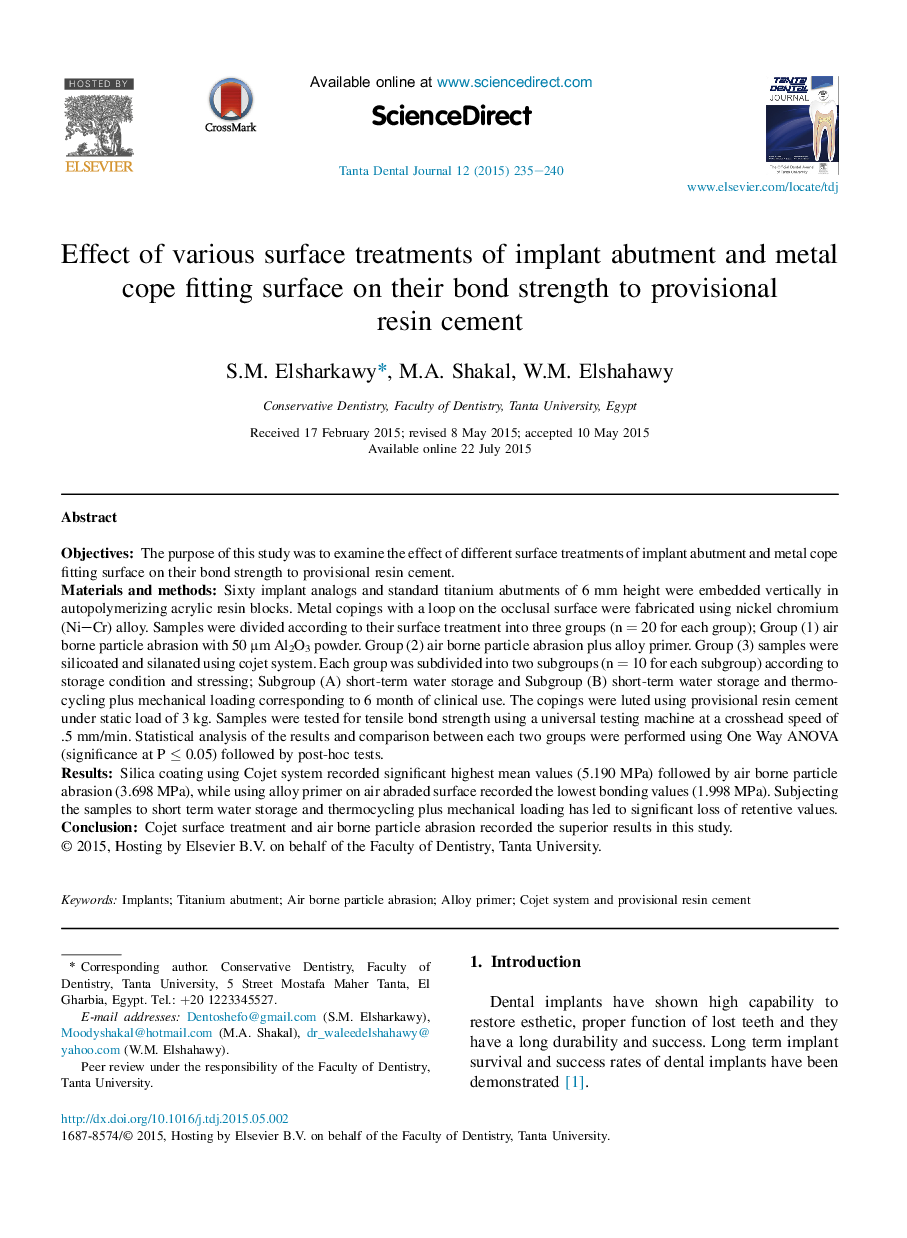| کد مقاله | کد نشریه | سال انتشار | مقاله انگلیسی | نسخه تمام متن |
|---|---|---|---|---|
| 3179598 | 1586501 | 2015 | 6 صفحه PDF | دانلود رایگان |
ObjectivesThe purpose of this study was to examine the effect of different surface treatments of implant abutment and metal cope fitting surface on their bond strength to provisional resin cement.Materials and methodsSixty implant analogs and standard titanium abutments of 6 mm height were embedded vertically in autopolymerizing acrylic resin blocks. Metal copings with a loop on the occlusal surface were fabricated using nickel chromium (Ni–Cr) alloy. Samples were divided according to their surface treatment into three groups (n = 20 for each group); Group (1) air borne particle abrasion with 50 μm Al2O3 powder. Group (2) air borne particle abrasion plus alloy primer. Group (3) samples were silicoated and silanated using cojet system. Each group was subdivided into two subgroups (n = 10 for each subgroup) according to storage condition and stressing; Subgroup (A) short-term water storage and Subgroup (B) short-term water storage and thermocycling plus mechanical loading corresponding to 6 month of clinical use. The copings were luted using provisional resin cement under static load of 3 kg. Samples were tested for tensile bond strength using a universal testing machine at a crosshead speed of .5 mm/min. Statistical analysis of the results and comparison between each two groups were performed using One Way ANOVA (significance at P ≤ 0.05) followed by post-hoc tests.ResultsSilica coating using Cojet system recorded significant highest mean values (5.190 MPa) followed by air borne particle abrasion (3.698 MPa), while using alloy primer on air abraded surface recorded the lowest bonding values (1.998 MPa). Subjecting the samples to short term water storage and thermocycling plus mechanical loading has led to significant loss of retentive values.ConclusionCojet surface treatment and air borne particle abrasion recorded the superior results in this study.
Journal: Tanta Dental Journal - Volume 12, Issue 4, December 2015, Pages 235–240
